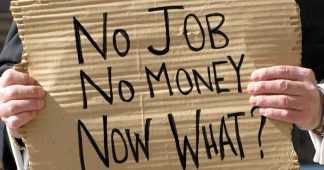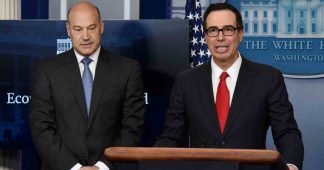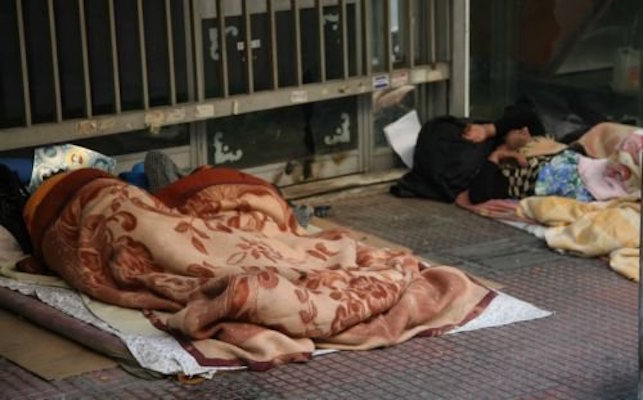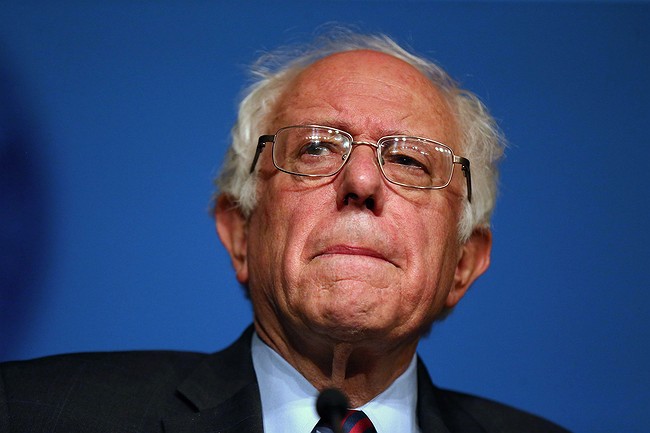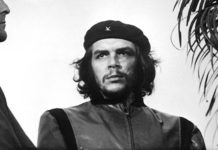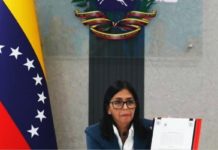22 January 2019
As members of the world’s financial elite gather today in Davos, Switzerland, for the opening of the annual meeting of the World Economic Forum, a new report by the UK-based charity Oxfam International has highlighted the vast accumulation of wealth at the heights of society, and the accelerating growth of social inequality.
The report showed that last year, the wealth of the world’s billionaires increased by $900 billion, or 12 percent, while 3.8 billion people—half the world’s population—saw their wealth decline by 11 percent.
Last year, the billionaires increased their wealth by $2.5 billion every day, while a millionaire moved into their ranks every two days.
In the decade since the global financial crisis erupted in 2008, governments and financial authorities have imposed its full impact on the backs of the world working class, in the form of stagnant and lower wages and austerity programs that have gutted health and other social services, to name just some of its effects. Meanwhile, wealth has become ever more concentrated. Last year, just 26 people controlled as much wealth as the 3.8 billion people who comprise half the world’s population, compared to 43 people the year before.
Oxfam noted that just 1 percent of the $112 billion fortune accumulated by Amazon owner Jeff Bezos, the world’s richest man, was equivalent to the entire health budget for Ethiopia, a nation of 105 million people.
The Oxfam report found that the top tax rate for the rich in the developed countries plunged from 62 percent in 1970 to 38 percent by 2013, and pointed to the tax cut introduced by US president Trump at the end of 2017, benefiting the wealthy and corporations.
In developing countries, the top personal tax rate is just 28 percent. In the UK and Brazil, the report found that the bottom 10 percent of the population paid a higher proportion of their income in tax than the top 10 percent.
Tax avoidance is rife. The report revealed that the super-rich were hiding $7.6 trillion from tax authorities, while corporations were holding large amounts of money offshore, depriving developing countries of $170 billion per year in revenue.
As a result, only 4 percent of all tax revenue came from the taxation of wealth.
The report noted that “the rate of poverty reduction has halved since 2013, and that “Extreme poverty is actually increasing in sub-Saharan Africa.”
It added that between 1980 and 2016, the poorest 50 percent of the world’s population received only 12 cents in every dollar of global income growth, while the top 1 percent captured 27 cents of every dollar.
A decade ago, the ruling elite’s annual meeting in Davos took place in the wake of the most severe economic and financial crisis, caused by the massive fraud and criminality of the world’s largest financial institutions.
But rather than being sent to jail, the “malefactors of great wealth” were bailed out. Over the next decade, they were provided with trillions of dollars of ultra-cheap money, enabling them to continue their wealth accumulation at an exponential rate.
According to a new report by Bloomberg, the wealth of the 12 richest Davos attendees soared by a combined $175 billion, as the overall wealth of the world’s billionaires grew, in the same period, from $3.4 trillion to $8.9 trillion.
The Bloomberg report highlights the details of this extraordinary growth:
- Mark Zuckerberg increased his wealth from $3 billion a decade ago to $55.6 billion, a rise of 1853 percent.
- Stephen Schwarzman, the head of the hedge fund Blackstone, has seen the assets of his firm rise from $95 billion at the end of 2008 to $457 billion, while his personal wealth has shot up from $2.1 billion to $10.1 billion, an increase of 486 percent.
- The media baron Rupert Murdoch has increased his wealth from $3.2 billion to $15.1 billion, a rise of 472 percent, while Jamie Dimon, the head of JP Morgan, has enjoyed a 276 percent wealth increase, from $0.4 billion to $1.1 billion.
And the list goes on.
The strength, however, of the economic data produced by Oxfam, forms a stark contrast to its prescriptions for dealing with such extreme levels of social inequality. These centre on the development of what it calls a “human economy,” built on different principles from what it calls a “growth economy.”
The “human economy” would provide health care, education and gender equality, and create the best conditions for shared wealth. It could be financed by raising taxes on the world’s wealthiest individuals and corporations, given that just a 0.5 percent increase in taxes on the richest individuals would raise enough money to educate the 262 million children, who currently don’t receive an education, and provide health care that would save 3.3 million people from preventable deaths.
Oxfam, however, has been making such proposals for the past eight years, issuing warnings and calling for a policy switch. But to no avail. Every year the situation worsens, as Oxfam itself acknowledges, and at an accelerating rate.
The scourge of social inequality cannot be ended through futile appeals, made to the very powers that preside over the current system, to change course. They are no more capable of that, than the ancien regime in France, prior to the revolution of 1789, or the czarist autocracy in Russia, before 1917.
excerpt from an article at wsw.org

